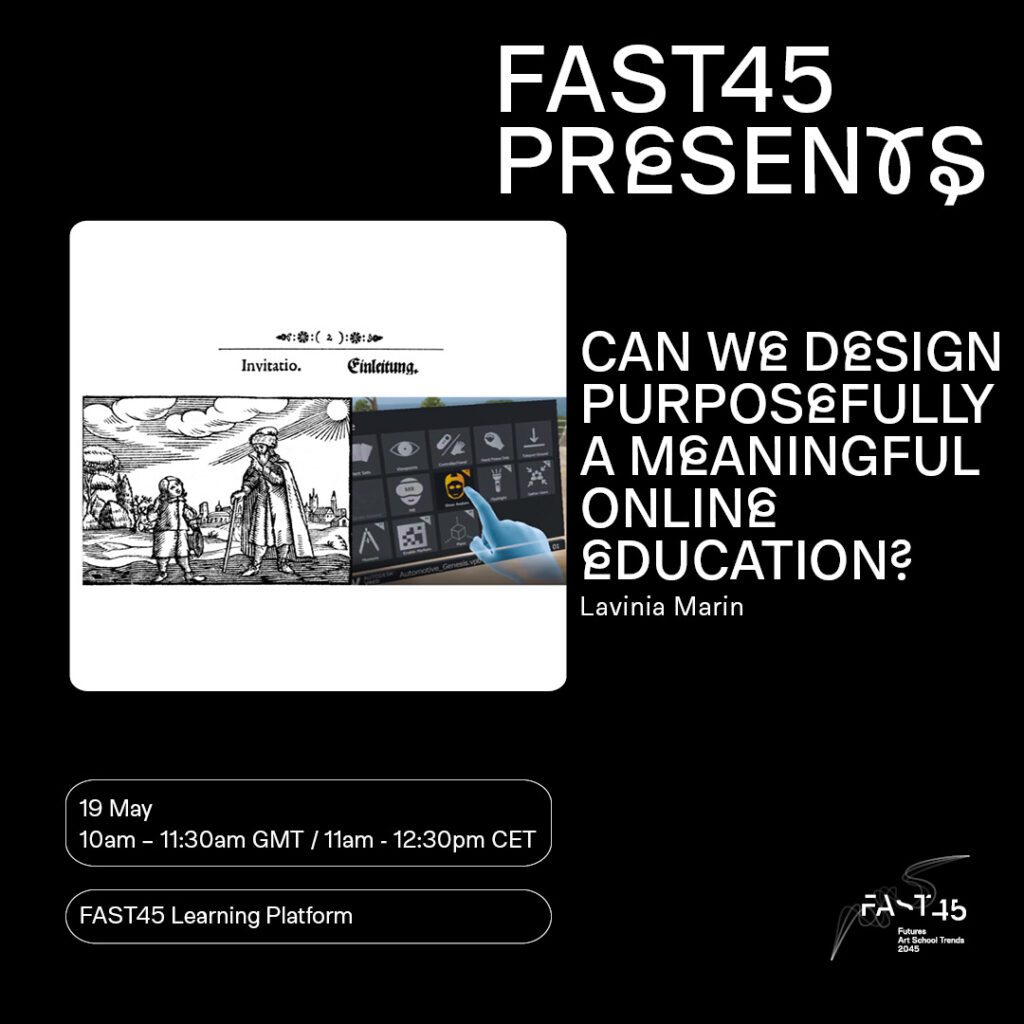
10am – 11:30am GMT / 11am – 12:30pm CET
In recent years, online education has been coupled with automation features. Automated solutions, increasingly sophisticated, drawing from large language models (such as the now famous ChatGPT) and personalisation algorithms are able to deliver personalised feedback tailored to the student’s needs. This online-enhanced with automation model of education threatens to move teachers and instructors to the reserves bench, making education a fully automated and “smart affair”. While recent critiques of digital education (including online education and now automated education) discuss the risks of delegating education to non-sentient entities, such as algorithms, smart interfaces and robots, in this talk I propose to reimagine digital education and see if there are some ways in which digital and online education can escape the current critiques. This reimaginig presupposes a redesign based on altogether other principles of work. I turn to value sensitive design as a possible methodology for designing a different technologically mediated education, from scratch. Current online and automated educational solutions are focused on desire satisfying and on psychological principles to engage the student-as-client. The values embedded in this automated model of education are students as workforce, future human resources. However, this is not the only value that one can prioritise, and it is not necessarily tied to the technology at stake. I propose to first inquire what are the values embedded in offline, “traditional” university education, and, starting from this, I inquire if we can
design alternative digital education systems with these values embedded at the core.
Lavinia Marin
This seminar is part of the FAST45 SEMINAR SERIES: PEDAGOGICAL LIFE AND THE DIGITAL UNIVERSITY OF THE ARTS. The series explores particular forms and aspects of pedagogical life that may inform or instruct our imagination on the concept of the learning platform. As a contemporary pedagogical form that connects physical and virtual learning communities, the learning platform is increasingly being aligned with corporate training and workplace learning models. In this seminar series we want to expand on these tensions, towards an open discussion on other possibilities within technological forms of education.
The programme will be run through the FAST45 Learning Platform over 7 x 1.5 hr sessions. Each session will be led by a key thinker on education and technology. As suggested by Roland Barthes, the seminar is an open-ended, relational space that connects ‘institution, transference, and text’. In the spirit of Barthes seminar, we ask that participants attend each session of the series in order to commit to this relational dynamic and partake in an ongoing dialogue.
Discussion
Tuesday December 5th
11:43 AM
Lea R. Minow
School of Commons (SoC) at the Zurich University of the Arts in Switzerland is an exciting project when it comes to online educational programmes that pursue values and experiences different from most other programmes. School of Commons focuses on community, social justice, mutual support and accessibility. Furthermore, the program facilitates open-ended processes, interest-driven learning and peer learning. As SoC has had no resources to design new technical tools, open-access standard online tools and environments are used to pursue these goals. Although they were not developed for these purposes, the case of SoC shows that they can be used differently with a different mindset and new methods that work with the given tools can be developed. This means that creative uses of existing tools can already create new experiences if an educational programme is based on different values. Still, It would be fascinating to be able to use online environments and tools that are more in line with the SoC values!
Share a Thought